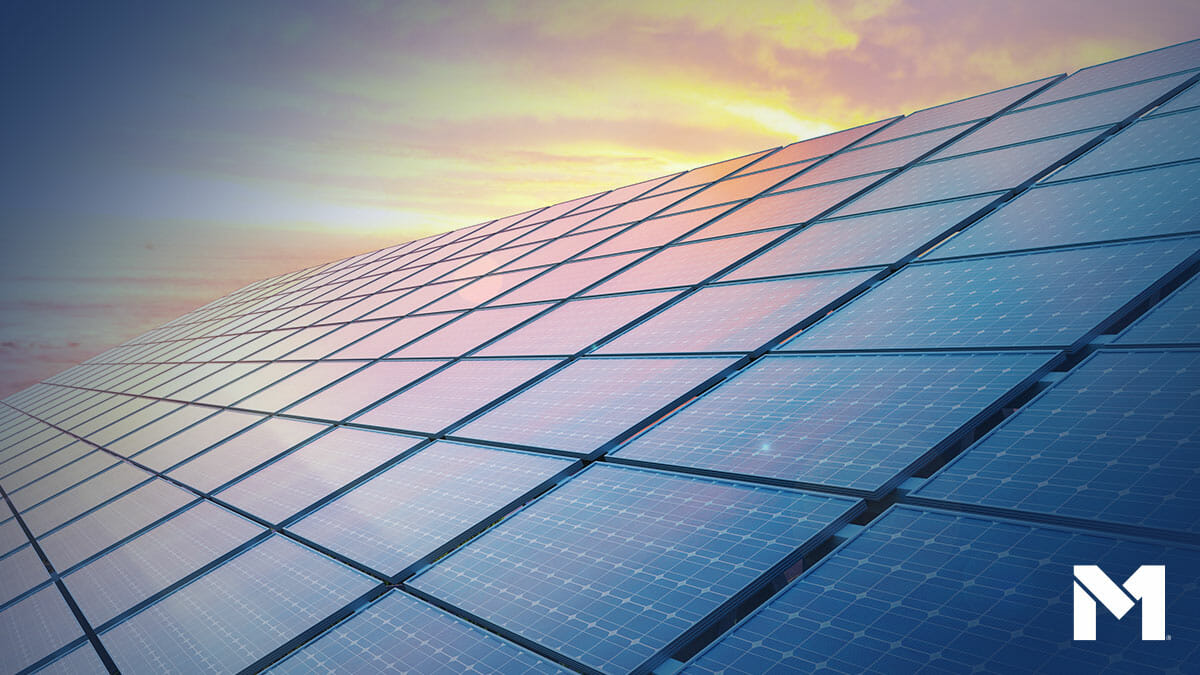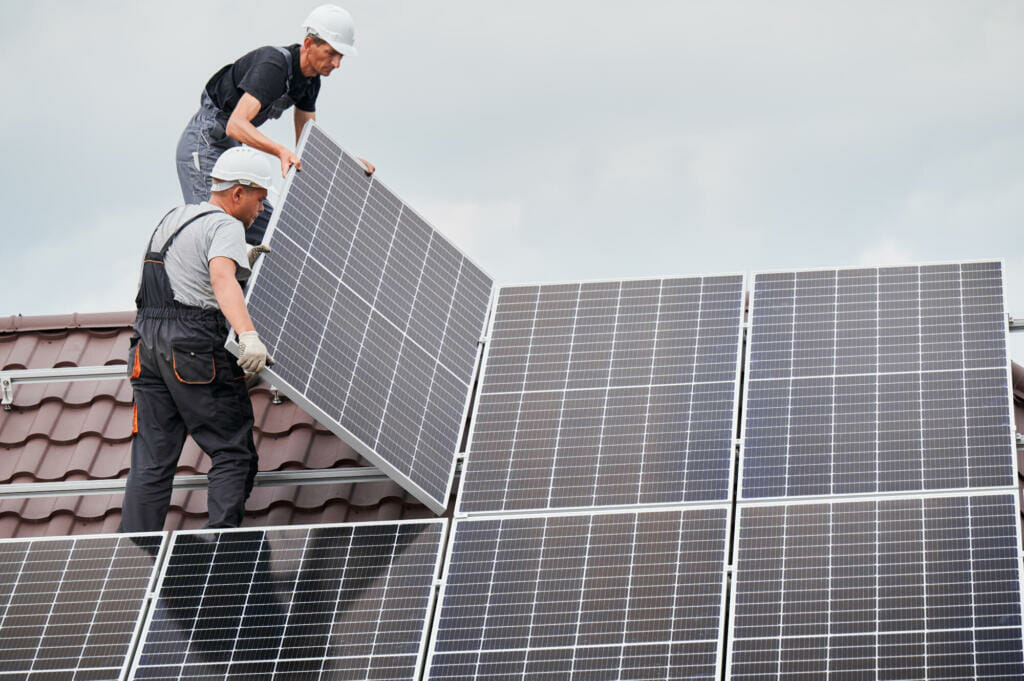Summer is coming. Is solar the right move to save money/invest in?

Inflation has caused energy prices to skyrocket. Electricity prices spiked 14.3% in 2022, and Americans are feeling the pain. And as home electricity usage is rising, from factors including working from home and charging electric vehicles, more and more homes are transitioning to solar energy.
In fact, nearly 4% of all U.S. homes have made the switch to solar, according to the Energy Information Administration. And as the price of solar continues to decrease, renewable energy becomes more accessible to homeowners.
While it may seem like a no-brainer to some, there are several factors to consider when deciding if home solar is the right solution for you.
The pros and cons of home solar panels
Solar seems like a great deal for homeowners that can afford it, right? Well, there are several pros and cons worth considering before converting to an alternative energy like solar:
Pros of solar panels
A great incentive to installing solar panels on your home is to save money on your home electric bill. The current estimated average U.S. home electric bill is roughly $138 per month. If your entire home solar system costs $20,000, this means you would break even in 144 months — or roughly 12 years. This also doesn’t account for inflation, large tax credits, or fluctuating energy prices, or reimbursements from the power company for excess energy you sell to their grid — so that break-even point could theoretically come several years sooner.
Aside from saving money each month, there are a few more pluses to consider:
- Reduces your need for energy from the grid during peak energy hours
- Could potentially improve the value of your home
- Solar panels generally have low maintenance costs
- Potential to sell back the energy you generate to your local power company
- Potential tax credits from federal, state and local governments (if you qualify)
Costs of solar panels, and other cons

While the potential savings of using solar energy is valid, there are a few drawbacks consumers need to be aware of before deciding for or against solar. The most obvious one being the overall purchase and installation can be costly.
While prices can vary widely depending on the type of solar panels you purchase as well as number of panels you need to power your home — you can expect to spend anywhere between $16,870 to $23,170, (after federal tax incentives) according to Energy Sage. This range is inclusive of equipment and installation. Energy Sage claims it takes roughly eight and a half years on average to break even on the investment. However, prices can vary based on your individual needs and preferences.
In addition to the heavy upfront investment, there are a few more downsides to consider:
- If you move, it’s not feasible to uninstall the system and take it with you
- It can be difficult to upgrade existing solar technology if you wish to add on or purchase new panels at a later date
- If you want to store the energy you create, that is another large expense to take on for purchasing a home battery
- Your home insurance policy may increase in price if you decide to raise your coverage amount to cover the solar panels
These pros and cons aren’t exhaustive, so be sure to do further research for your own area to see if there are other benefits or negatives to going solar.
How to shop for solar for your home
There are several layers to consider when purchasing a photovoltaic setup for your home. This includes, but isn’t limited to:
- Price point and financing
- Picking a supplier/installer
- Ensuring your home is fit for solar
- This includes the positioning of your home relative to the sun, the material and quality of your roof, if there is anything blocking your roof (e.g., trees or buildings)
- Running the cost analysis to see if solar is right for your home
- Government incentives (federal, state, and local)
Justin Pekarek, a real estate broker in Orlando, Florida, who has outfitted his own home with solar, recommends starting locally by asking around. “I’d go hyper-local and talk to neighbors that have interviewed multiple companies,” he says. “Check out local social media neighborhood groups. They are a great place to compare numbers with those living in similar age and size properties.” Some ideas to get started are posting on local Facebook groups or NextDoor, gather information online, reach out to local solar companies and even talk to neighbors that may have a current solar setup.
But the key to figure out which solar system is right for your home is figuring out the cost per watt. Here’s how that works:
(Total cost of solar panels + installation / the number of kWh of the system)
This will give you the cost per watt. This is the key metric to compare systems to when shopping around.
You can find an average cash price for your home state here. However, Pekarek implores homeowners to remember that each home is unique, and each home will likely need a different setup to support the individual’s energy needs.
How to pay for solar on your home
There are three ways to purchase solar for your home: purchasing outright, get a loan, or opting to lease the equipment from the provider.
Purchase your PV system outright to save
According to Pekarek, paying for your solar setup upfront could be the most beneficial option to avoid paying interest and fees for taking out a loan.
Use a loan to pay for solar
However, if you don’t want to pay in full, there are other financing options, including:
- Personal financing with a personal loan or home equity line of credit (HELOC)
- Financing through the solar company themselves
With most loan options, you will likely need to have a credit check and pay financing charges, which can eat into your savings. So before selecting a lender, shop your loan options around to find the best interest rate.
Note that Pekarek says it’s not advised to sell a home with a solar panel debt tied to the property, so try to pay off the debt before selling.
Solar lease
If you don’t have the ability to pay or finance for an entire system, you could opt for a leasing program.
This works similar to a car lease — you get the benefits of a reduced electric bill, but you have a monthly bill from the solar company instead. At the end of the lease, you have a few options:
- Renew the lease for the system
- Have the panels removed from the home
- Purchase the system outright (the company will either have an agreed-
The M1 bottom line
Energy prices are on the rise, and as summer approaches, you may find yourself with higher-than-normal electricity bills. So if you live in a sunny place and can get solar panels installed on your roof, it may be worth considering to save money over the long term and have a more sustainable and energy-friendly home.
20230328-2809703-8928968
- Categories
- Plan



